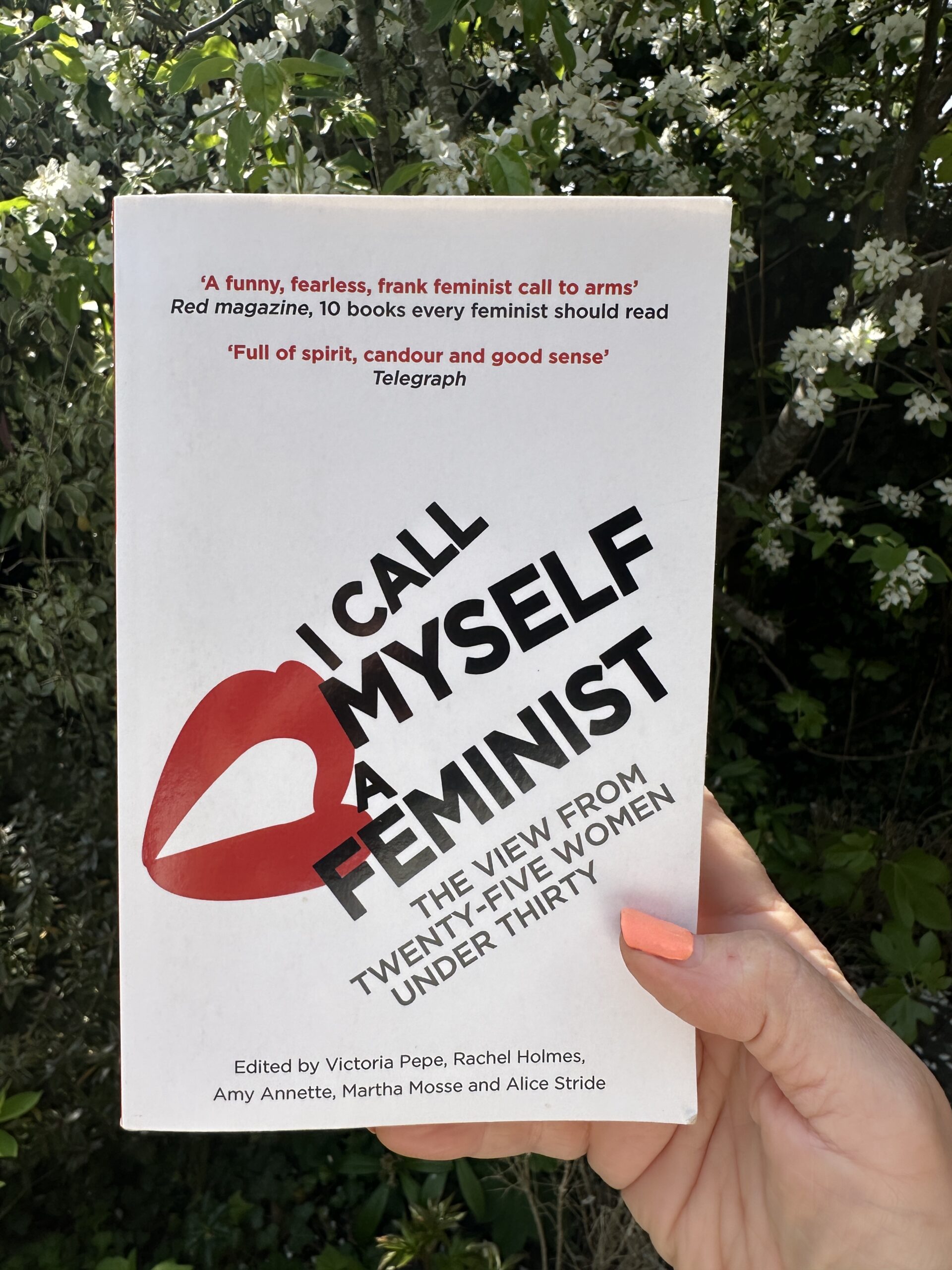I call myself a feminist – The view from twenty-five women under thirty (edited by Victoria Pepe, Rachel Holmes, Amy Annette, Martha Mosse and Alice Stride)
This book is essential reading for anyone questioning if they are a feminist, are put off feminism, or are wondering if it is even necessary to be one in the modern world (you know who you are). Filled full with twenty five short essays, crafted by women under 30, all of whom call themselves a feminist for very different reasons. But each of these compelling and impressive women writers are firmly committed to why they need to keep using the ‘F’ word.
My overriding response to almost every essay is expressed in a line in the book’s introduction: “THIS!, This is exactly what I have been trying to say! I get this!”. And lest I forget, in between each essay are quotes and excerpts from the most wonderful, world people, each with their hot take on feminism, and each of its many interpretations.
Its especially impactful for me as I have always considered and called myself a feminist but I am rightly questioning why. Had I been asked to write a short essay for this book I would have said I called myself a feminist because I took on traditonally male spaces, studied stereotypically male subjects, and forged into classically male professions and tried to succeed within them. I called myself a feminist because I was able to harden myself to verbal abuse, assault and inequality, allowing humour or indifference to override my awkwardness and girlish femininity. I called myself a feminist because I could do whatever men did, was mentally strong, and I was able to be ‘one of the boys’ when needed. ALL AWFUL REASONS!
So reading each of these essays has woken some much in me, and I believe that the range of perspectives make it almost impossible not to wake up to more and more reasons and experiences of, or identify with yet another obvious justification for, feminism. Perhaps most strikingly, and aligning to my own project, is the focus on the views and experiences of young women. This underpins how progressive the younger generation are, and my feeling of responsibility to educate myself more fully.
Within the book, the essays cover more than I can possibly blog about in detail. However, amongst many others, they look at: the harm of internalised misogyny, the power of teachers in addressing language and early behaviours, the legacy of Emmeline Pankhurst within her own family, the ability of theatre and drama to empower women, the insidious creeping poison of media influence, the isolation of being a feminist even amongst women, a manifesto of feminist intersectionality, the capacity for small feminist, communty action to make change, the horrors of acid crime/FGM/rape/male violence enacted on women by men, how taking up space is a feminist act, and so so many more.
It is hard to single out one essay that hits hardest in this compendium of eye-openers. However, Martha Mosse articulates so brilliantly the stigma that is still associated with the word ‘feminism’, even among women. She expresses how I feel in putting my head above the parapet and making statements about my own feminism which I know do not chime or resonate with close friends and family. But encapsulated in how I feel are her words below:
“The simple truth is that however things have improved for some women, the world does not offer equal opportunities to women and men. Everywhere, girls and women are still objectified, intimidated and harassed on the street……..Feminism is fairness”




Leave a Reply